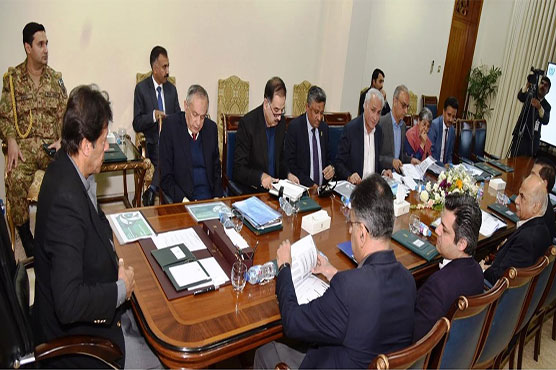PM Imran principally approves first ever National Tariff Policy

The draft policy, approved by the Prime Minister, would be presented before the Federal Cabinet for
ISLAMABAD (Web Desk) - Prime Minister Imran Khan on Wednesday approved, in principle, the first-ever ‘National Tariff Policy’ of the country that aims at ensuring transparency, predictability and institutionalizing the entire structure of tariff regime of the country.
The draft policy, approved by the Prime Minister, would be presented before the Federal Cabinet for its consideration.
Highlighting salient features of the policy, Secretary Commerce Mr. Mohammad Younus Dagha said that the major objectives of the National Tariff Policy (NTP), which has been drafted after detailed and comprehensive discussions with the stakeholders, is to improve competitiveness through access to raw materials, increase employment opportunities by attracting investment through transparent and predictable tariff regime and remove anomalies in tariff structure, causing distortions.
Policy principles include tariff as a trade policy instrument, reducing exemptions and concessions, cascading tariff structures with stage of processing of a product, strategic protection to domestic industry and competitive import substitution.
The new policy also envisages establishment of a broad-based Tariff Policy Center in the Ministry of Commerce to formulate proposals for improving tariff structure in pursuance of the objectives of the National Tariff Policy.
The Prime Minister appreciated the efforts of Commerce Ministry in formulating a comprehensive tariff policy for the first time in the history of the country which, he said, will greatly restore confidence of the business community by providing for a transparent, predictable and institutionalized structure for tariff setting.
The Prime Minister observed that the economy, especially the trade and industrial development suffered in past due to adhocism and unpredictability of tariff structure resulting in capture of the economy by vested interests and rampant corruption.

